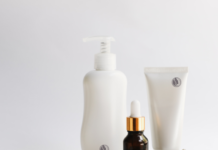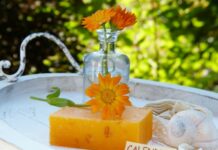
With the arrival of the warmer months, it becomes important to change one’s beauty routine to keep the skin hydrated and protected from the increasingly intense sun rays and to face the summer days with freshness and radiance.
One of the most popular products at this time is sunscreen, since when exposing yourself to the sun, it is important to use high quality protection. The Italian sunscreen market, which is expected to grow annually by 0.95% between 2024 and 2029, reflects this trend. However, although sunscreens are essential to ensure adequate protection during the summer, they can have a negative impact on marine ecosystems, as can other products such as moisturising creams or shampoos. NATRUE, which has been promoting authentic natural and organic beauty since 2007, provides a guide to choosing environmentally friendly formulations.
The impact of microplastics and synthetic ingredients – Microplastics are present not only in some sunscreens, but also in exfoliants, shower gels or toothpastes. These tiny particles, even when effective, can pass through water filtration systems and end up in rivers, lakes and oceans, contributing to pollution and the deterioration of marine habitats. However, growing environmental awareness is driving a significant shift in consumer preferences towards sustainable products, and cosmetics brands are adapting to these new demands, considering that cosmetics launches with ethical and environmental claims have grown by 66% in the last five years, between October 2018 and September 2023.
NATRUE-certified formulations represent a commitment to the protection of the marine environment – NATRUE does not allow substances from genetically modified organisms (GMOs), silicones, parabens, microplastics, synthetic fragrances or mineral oils in the formulation of products bearing its label. Therefore, all NATRUE-certified cosmetics – the list is available on the association’s website – guarantee effective protection and care of the epidermis without compromising marine ecosystems. The NATRUE standard not only lays down biodegradability requirements, but also pays attention to packaging, which is always kept to a minimum, and products, which should be developed for multiple uses. Furthermore, the strict criteria applied by NATRUE stipulate that packaging should be recyclable and, where possible, made from renewable materials.
The summer beauty routine: NATRUE’s 4 tips to keep you glowing. It starts with exfoliation with natural and sustainable scrubs. NATRUE recommends choosing natural and certified cosmetics made from ground coffee, sea salt and crushed walnut shells, as the microbeads in many synthetic products are a major environmental problem. When moisturising the skin, avoid silicones and petrolatum, which can persist in the environment and cause long-term damage, and opt for sustainable alternatives such as shea butter, jojoba oil and aloe vera, which nourish the skin and biodegrade quickly. Sun creams are essential in the summer, but beware of those containing chemicals such as oxybenzone and octinoxate which, although safe for human use, can have negative impacts on aquatic ecosystems These substances have, in fact, been linked to coral bleaching and compromising the health of marine organisms. Not to be neglected is the care of hair, put to the test by prolonged exposure to UV rays, swimming pool chlorine and sea salt: botanical extracts and essential oils such as argan and coconut provide nourishment and shine, without burdening the environment.
“Even in summer, it is essential to think about the environment, choosing a natural and certified beauty routine, formulated with ingredients that help to protect the delicate balance of marine ecosystems and the species that inhabit them,” comments Paula Gómez de Tejada, NATRUE Global Communications and Public Relations Manager. “Even when choosing cosmetics for the warmer months, it is very important to look for the NATRUE certification mark, which is based on strict standards and is a guarantee of authenticity and transparency of natural and sustainable formulations”.






































